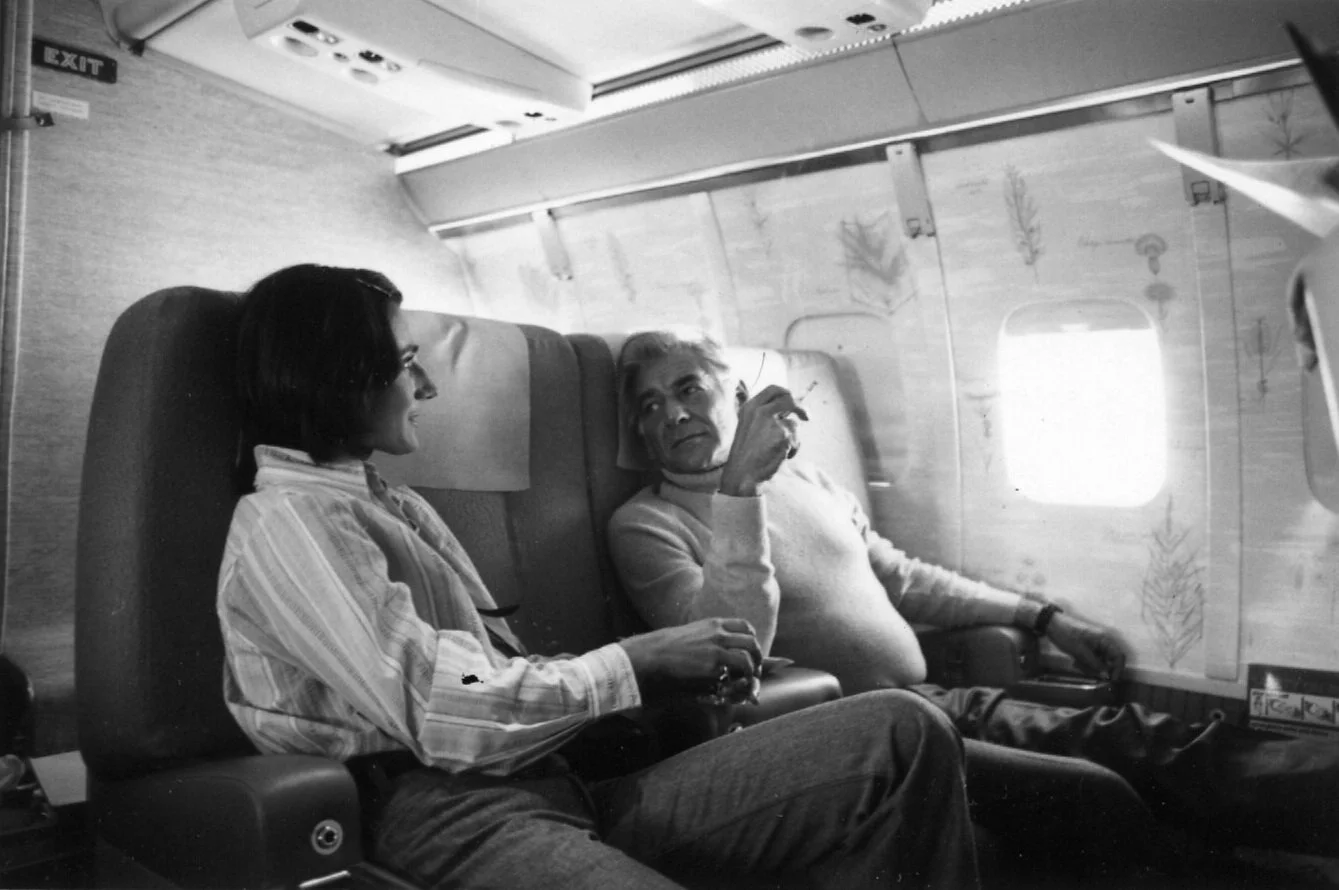
“I’ve have known Hanna Lachert for decades ... as the fine violinist and the cultured human being she is. She has much wisdom to impart.”
Polish-born and New York-based violinist Hanna Lachert has played more than 5000 concerts in 56 countries as a soloist, chamber musician, and longtime member of the New York Philharmonic Orchestra (1972- 2012).
Ms. Lachert played her New York solo debut in 1972 (under the auspices of Carnegie Hall and Jeunesses Musicales), and has given concerts throughout the United States, ranging from a recital in Carnegie Hall –which was nationally broadcasted on public radio– to solo appearances with the New York Philharmonic (under Zubin Mehta), The Chelsea Symphony, New Jersey Symphony, and Manchester Festival Orchestra, among others. She was also a soloist with several Polish, Belgian, German, Israeli, and Mexican orchestras and has made many television and radio appearances. Ms. Lachert has taught at the Manhattan School of Music: Preparatory Division, given master classes throughout Europe and Japan, and judged international violin competitions.
Included in her numerous recordings for the Muza, Telarc, Spectrum, and Musika labels are the complete violin works of Szymanowski, Bartók’s Sonata for Violin, concertos by Karlowicz and Dvorák, and Sonatas by Krszysztof Penderecki and Piotr Lachert.
In her native Poland she has played in Warsaw, Krakow, Gdansk, and Wroclaw, with leading Polish orchestras under the batons of Jerzy Maksymiuk, Boguslaw Madey, Karol Stryja, Stanislaw Wislocki, Antoni Wit, and others. She was also a featured artist in Roman Lasocki’s television series “Mistrzowie Wiolonistyki Polskiej” (Master Polish Violinists). In 2015, in recognition of her life-long work on the promotion and advancement of Polish Music and Musicians, B. Komorowski, President of Poland, awarded her with the Knight's Cross of the Order of Merit.
Throughout her life Ms. Lachert has been a champion of music by contemporary composers, with several compositions written for her, including Charles Whittenberg’s Winter Music, Elzbieta Sikora’s Solo, Marta Ptaszynska’s Mancala, Piotr Lachert’s Trois Sketches, Concerto per violino, Vino- Vino, IX Sonata and 25 Sonata. She has played a dizzying number of 20th century works in venues ranging from Warsaw’s Radio Studio 3 “Musical Workshop,” “Diabolus Musicus” and chamber music ensembles under Pierre Boulez, to the New York Philharmonic's "Contacts" series.
Ms. Lachert comes from a musical family. Her brother, Piotr (1938-2018), was a composer. She was a gifted child at the piano, beginning lessons at age three, and took up the violin when she was eight. Her studies culminated with Master’s Degrees with honors from both the Fryderyk Chopin University of Music in Warsaw and the University of Connecticut. She further earned a Solisten Diploma from the Hochschule für Musik in Hannover and a Premier Prix with distinction from the Royal Conservatory in Brussels.
Ms. Lachert was the president and co-founder of the American Society for Polish Music from 1991-97 for which she received a Paderewski Medal. She was co-artistic director of the Waterville Valley Music Center in New Hampshire until 2013.
Ms. Lachert plays on a violin made in 1982 by her luthier husband, David Segal. Her daughter Adi Segal is an artist, and her son Yaniv Segal is a conductor and composer.
-updated 10 November 2021
“Impressive recital by Hanna Lachert”
“Miss Hanna Lachert is a highly gifted, brilliant and imaginative violinist.”
“I have had much opportunity to appreciate her playing and to know how refined is her musicality.”
“...perfectly controlled yet vividly imagined reading of the Penderecki. The furious, dashing spiccato of the caprice-like Allegretto scherzando has real brilliance, while the darker musings of the lengthy Nottorno are beautifully paced, described with a broad, sweeping tone.”
“She has considerable experience as a soloist, a thorough command of the instrument and an intelligent and sensitive approach to interpretation.”
